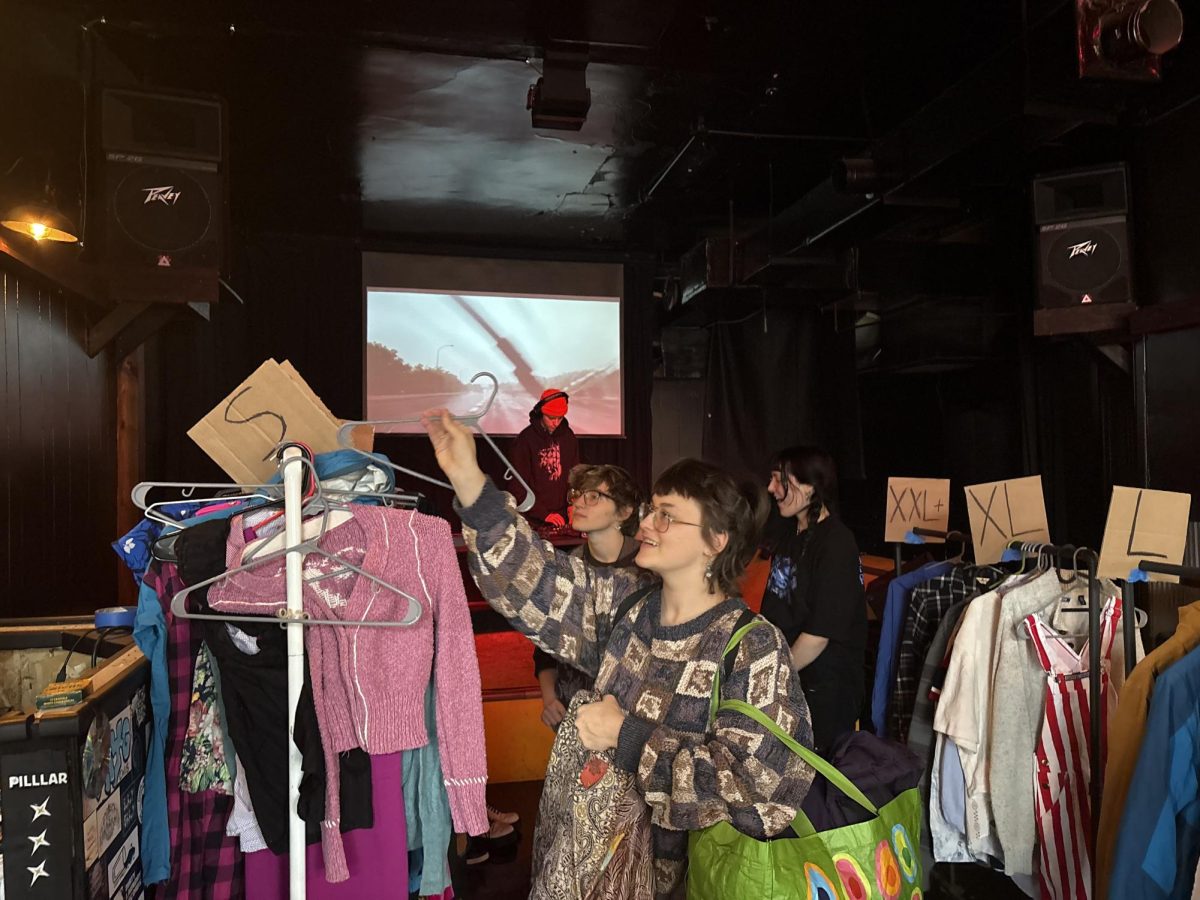By the 1950s, paranoia had become an American reality.
Soviet communism, McCarthyism and a successfully tested Soviet atomic bomb inaugurated a hard line policy of military escalation in the United States. In 1962, the Cuban missile crisis galvanized a sense of pervasive national fear that makes today’s terror scare pale in comparison. Written in the early 1960s, Edward Albee’s “A Delicate Balance” indirectly builds on that Cold War anxiety and isolation.
Tobias (Stephen Yoakam), a defeated father figure, is comfortably detached from familial problems. Under the calculated reason of his wife Agnes (Nancy Plank), they manage to maintain the artifice of a perfect suburban lifestyle.
Together with Agnes’ sister Claire (Mimi Wyche), a ribald and drunken sideshow attraction, they await the homecoming of Julia (Heidi Ricks), their daughter, from her most recent divorce. In one fell swoop of absurdity, Agnes and Tobias’ best friends, Harry (Tom Sherohman) and Edna (Wendy Lehr), arrive possessed by an unexplainable fear. With nowhere else to go, they take refuge upstairs.
This fills the house to the point of bursting. Tobias finds himself at the center of this conflict. Despite his lack of preparedness for the role, he is forced to assume it as the patriarchal decision-maker.
Tobias, under duress, must struggle to abandon his feelings of loss and his aloofness from family affairs in order to make a judgment on Harry and Edna. Is friendship entitled to the same consolations as blood ties?
Since 1991, The Jungle Theater has been offering audience members a close association and experience of the classics. Retaining the values of a smaller theater became crucial during the Jungle’s move into its new space in 2000. “I am a great believer in an intimate relationship between the audience and the player,” said Bain Boehlke, artistic director and founder of the theater. “The heart of Jungle Theater’s mission is that intimate relationship (and) to keep these works by Samuel Beckett, Tennessee Williams and the American classics alive in a professional way.”
With only 10 rows of velvet seating, vaulted ceilings and a cozy lobby, the theater has achieved that mission splendidly. The warm proximity between the audience and stage lends jokes, gestures and dramatically fraught scenes a sense of weight that would be absent in larger venues.
The contemporary set design, by Boehlke and Sasha Thayer, will have some reconsidering their current living arrangement. Taking
residence among leather-bound books, soft lamplight and enough booze to sink a pirate ship will make the dysfunction of the family seem inconsequential.
Despite the contemporary set, Boehlke made a decision to keep other aspects, such as character wardrobe, in the era it was written, even thought he said it resonates today.
“It seems to me that there are things in (the play) that would be best if kept time-specific,” Boehlke said. “Like the reference to marijuana. And also the issue of fear. That was the Kennedy years, and his whole thing, ‘You have nothing to fear but fear itself.’ We know about terrorism and fear in a way that is very personal now, so this doesn’t quite have the same kind of cachet as it did then. I think it’s best to keep (the play) at its place where (that) thinking went on.”
In “A Delicate Balance” Albee challenges the integrity of language and, at some points, the audiences’ patience. Lines are consciously stilted, pulled up short and broken by elaborate parenthesis.
“It follows, to my mind,” Agnes says in the first act. “That since I speculate I might, some day, or early evening I think more likely – some autumn dusk – go quite mad.”
Tobias’ meta-ethical questioning of the words “want” and “ask” in the third act provokes his objectiveness to hysteria. Tobias, though finally breaking character in this passionate scene, goes unheard, and skulks back to his seat in silence.
It’s reassuring that the classics, like Albee, have a home at The Jungle Theater, a place where the graft of reason, that appalling human virtue, doesn’t fit quite perfectly, or where humanity can lose itself in darkness and as Edna says, “still not know Ö still not have learned Ö boundaries.”







